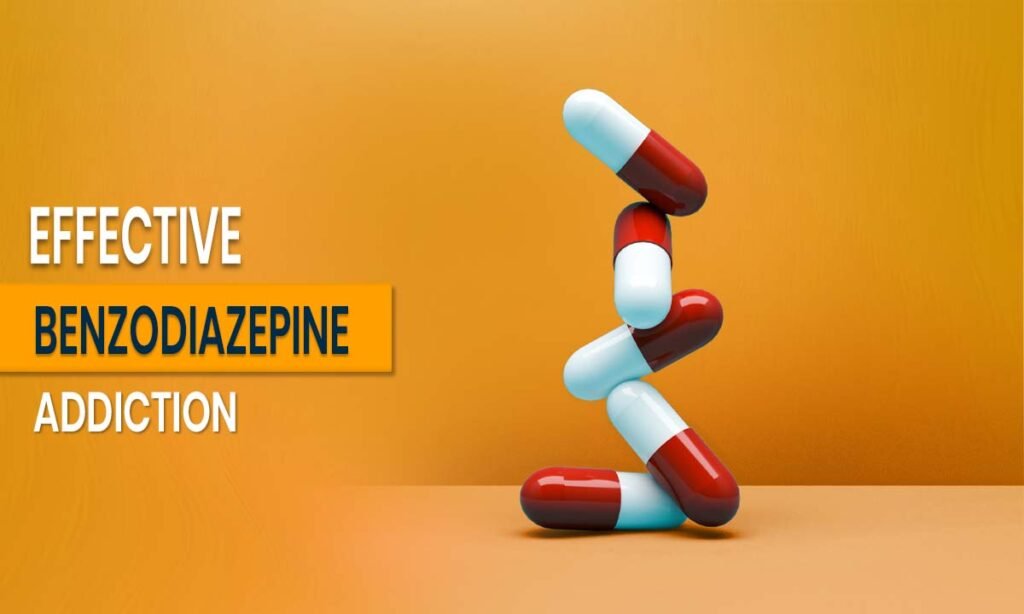
Struggling with addiction and feeling overwhelmed? It’s common to face mental health challenges during recovery. Addiction can take a significant toll on mental well-being, leaving many feeling lost or stuck. However, there is a powerful tool that can help in overcoming these obstacles: meditation.
Meditation for recovery has proven to be a game-changer for many people looking to heal. In this article, we will explore how addiction recovery meditation can benefit mental health recovery, reduce stress, and provide a deeper sense of peace and clarity.
So today, read this article till the very end because I’m going to give you some great information on how meditation can be the key to turning your life around. If you are suffering from addiction or know someone who is, we’ll guide you step-by-step on why meditation for recovery should be a part of your journey.
Table of Contents
ToggleWhat is Meditation for Recovery?
When it comes to addiction recovery, the journey is often long and difficult. It’s not just about quitting the addictive behavior but also about rebuilding the mental and emotional aspects of life that were damaged during the process. The benefits of meditation have long been known in the realm of mental health recovery.
Practicing mindfulness and meditation can help calm the mind, reduce stress, and bring awareness to the present moment. For many in addiction recovery, this means learning how to manage triggers, find inner peace, and deal with negative emotions that may arise during the healing process.
Meditation is not a quick fix, but with time and consistency, it has been shown to support stress management and help individuals stay focused on their recovery goals. The importance of addiction recovery meditation lies in its ability to rewire the brain, reducing the urge to return to old habits and promoting healthier coping mechanisms.
Why Is Meditation Important in Addiction Recovery?
1. Mental Clarity and Focus
The brain of an individual struggling with addiction can become foggy, clouded by cravings, stress, and negative thought patterns. Meditation for recovery provides a mental reset. It allows individuals to clear their minds, helping them focus on recovery and become more mindful of their actions and thoughts. Meditation helps increase self-awareness, which is a crucial tool in overcoming addiction.
2. Stress Reduction
Addiction and stress often go hand in hand. The pressures of life, emotional turmoil, and societal expectations can contribute to the urge to use substances as a coping mechanism. However, addiction recovery meditation can serve as an excellent tool for stress management. Studies have shown that mindfulness and meditation can significantly reduce cortisol levels (the stress hormone), helping individuals feel more relaxed and in control of their emotions.
3. Emotional Regulation
Recovery from addiction often involves dealing with overwhelming emotions. Whether it’s anger, sadness, or anxiety, these emotions can lead to relapse if not managed properly. Meditation encourages emotional awareness and regulation, helping individuals identify and process their emotions in healthy ways. Mental health recovery through meditation helps build emotional resilience and provides the mental strength to face life’s challenges without turning back to destructive habits.
4. Improved Sleep Patterns
Addiction can disrupt sleep cycles, making it harder to fall and stay asleep. Meditation has been shown to improve sleep quality by calming the mind and promoting relaxation before bedtime. Getting enough restful sleep is essential for the body and mind to recover. Addiction recovery meditation not only supports overall well-being but also helps re-establish healthy sleep patterns, which is crucial during the recovery journey.
How Meditation Benefits Addiction Recovery
Meditation is a powerful tool with many mental health recovery benefits. Whether practiced for just a few minutes each day or incorporated into a longer routine, it can positively affect various aspects of recovery. Let’s dive into the specific meditation benefits that make it so effective:
1. Breaking the Cycle of Negative Thoughts
Addiction often comes hand in hand with negative thought patterns, such as self-doubt, guilt, or shame. Meditation helps break these patterns by teaching individuals to observe their thoughts without judgment. By doing so, it becomes easier to distance oneself from negative thoughts, reducing their impact on emotions and behaviors.
2. Promoting Mindfulness
One of the most significant aspects of meditation is mindfulness. Practicing mindfulness during addiction recovery meditation means being fully present in the moment without getting lost in worries or past regrets. This awareness helps individuals gain a better understanding of their triggers, emotions, and behavior, leading to more conscious decisions that support their recovery journey.
3. Healing the Brain
Studies suggest that meditation for recovery may even help heal the brain. Brain imaging research has shown that mindfulness and meditation can stimulate areas of the brain associated with focus, emotional regulation, and decision-making. This is particularly important for individuals in recovery, as it can help rewire the brain and strengthen its ability to resist cravings and temptations.
Success Stories: How Meditation Has Helped in Addiction Recovery
Let’s take a look at a few success stories where meditation for recovery played a pivotal role in the healing journey:
1. Arun’s Story: Arun had been battling alcoholism for years, but it wasn’t until he started practicing daily meditation that he truly began to heal. “The first time I meditated, I felt like a weight had been lifted off my shoulders,” he says. “It helped me focus on what truly mattered and gave me the strength to fight the cravings. I now meditate every morning, and it’s part of my daily routine.” Today, Arun has been sober for two years and attributes much of his success to his meditation practice.
2. Priya’s Experience: Priya struggled with a long history of substance abuse. After several failed attempts at traditional rehab centers, she decided to try something different. “I had heard about addiction recovery meditation and thought it was worth a shot,” she recalls. “The mindfulness techniques I learned helped me stay present and manage stress without resorting to drugs. Meditation has been my anchor, and I wouldn’t be where I am today without it.”
Athena Luxus: Your Partner in Addiction Recovery
If you are struggling with addiction, don’t panic there’s help available. Athena Luxus is a luxury rehab center located in Delhi, offering comprehensive mental health recovery services. We specialize in supporting individuals on their recovery journey through proven techniques, including meditation, therapy, and counseling.
We understand that anxiety and stress increase with time, which is why we offer tailored support to address your needs, helping you find peace and regain control.
If you’re suffering from addiction or mental health problems, reach out to us today. Our team of professionals is here to guide you through every step of the recovery process, offering services that will help you reclaim your life.
Conclusion
Incorporating meditation for recovery into your daily routine can be the key to overcoming addiction. The meditation benefits are numerous, from emotional regulation to better sleep and reduced stress. By practicing mindfulness and staying present, individuals can strengthen their resolve and achieve long-term recovery.
At Athena Luxus, we provide all the support you need to embark on this journey. Don’t wait for anxiety to take over; contact us now to start your path to healing.
Patient Experiences
Sandeep Kumar: “Meditation helped me regain my clarity and break free from addiction. It was a game-changer in my recovery.”
Neha Sharma—I never thought meditation would make such a difference. Now I feel more in control of my emotions and my recovery.”
Rahul Gupta —Through meditation, I found a way to stay present and tackle stress. It’s been essential in my journey of recovery.”
Aarti Patel: “I was skeptical at first, but meditation has truly helped me understand myself better and stay focused on my recovery goals.”
Book Your Appointment Today: If you’re struggling with addiction or want to learn how to improve your mental health, don’t hesitate. Book an appointment now to start your journey to recovery.
Frequently Asked Questions
-
How does meditation help in addiction recovery?
Meditation aids in addiction recovery by reducing stress, increasing emotional awareness, and improving mental clarity, all of which contribute to long-term healing. -
Can meditation be done during rehab?
Yes, many rehab centers incorporate addiction recovery meditation as part of their holistic treatment plan to help individuals manage cravings and develop healthier coping strategies. -
How often should I meditate during recovery?
It’s recommended to meditate daily, starting with just a few minutes a day and gradually increasing the time as you become more comfortable with the practice. -
What if I feel like I can’t focus during meditation?
It’s normal to struggle with focus in the beginning. Just acknowledge the distraction and gently return to your breathing or mantra. Meditation is a practice that improves over time.

